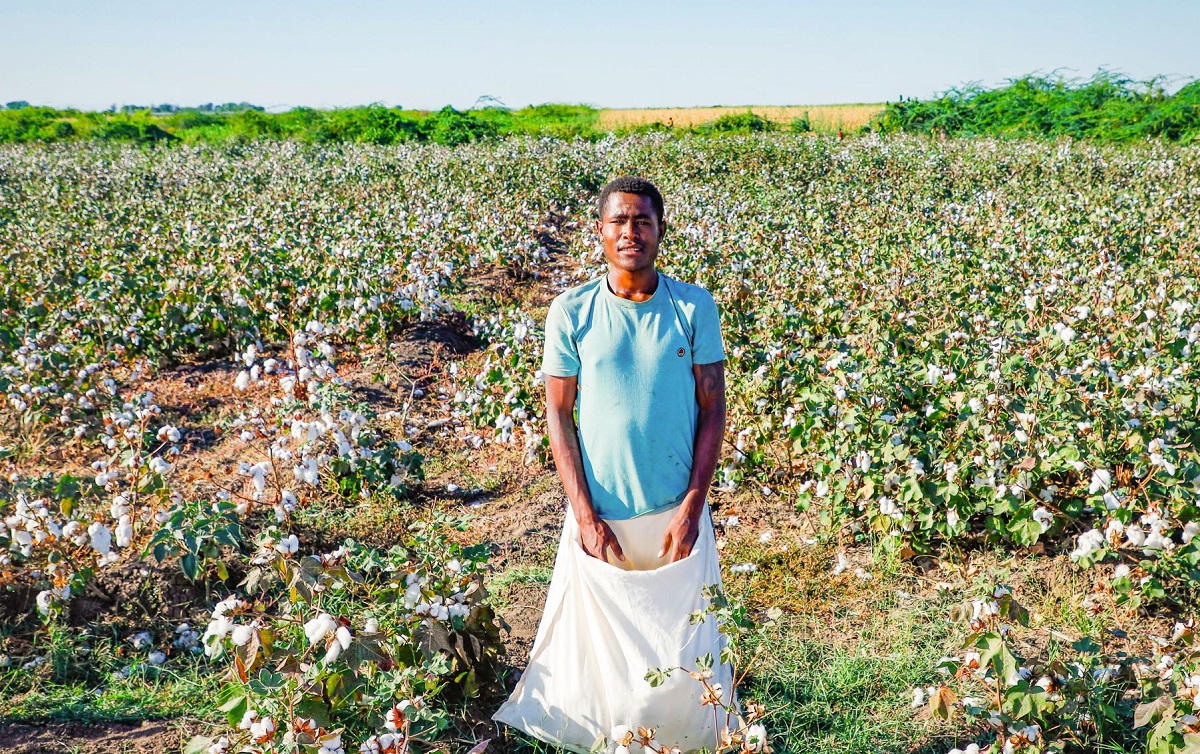This paper, hosted on the Sustainable Cotton Hub, tackles Climate and Cotton. It shows that net-zero fossil fibers are not possible, but net-zero and even net-positive cotton might be feasible. However, current cotton farming practices too often are ecologically damaging and still contribute to climate change.
If retailers and brands don’t change their relationship with cotton farmers and their value chains, the damage to livelihoods, environments, and future production may become irreversible.
While the industry’s biggest emissions are from textile manufacturing and consumer-use, the use of synthetic pesticides and fertilizers are the largest sources of greenhouse gas emissions in the cotton production phase, and they come with a host of other damaging environmental impacts.
In 2022, widespread flooding in Pakistan, the 7th largest cotton producer in the world, affected or destroyed around 40% of the country’s cotton crop. The immediate causes of the floods were heavier than usual monsoon rains and melting glaciers that followed a severe heat wave. In the US, drought led to the loss of around one million tonnes of cotton in West Texas, 4% of global production, according to the International Cotton Advisory Committee.
Climate poverty blocks the way to adapted cotton production
The impact of climate change is already being felt in every cotton producing region. Cotton is very vulnerable to changes in heat and humidity and as such cotton farmers have been greatly impacted by unpredictable weather patterns.
Smallholder farmers in poverty will not be able to adapt fast enough to ensure reliable production. These farmers will lose further income due to lost cotton harvests, putting them in a cycle of climate poverty, both impacted by and unable to adapt to climate change.
Posited alternatives, such as cheap plastic fibers, will only deprive poorer communities of income and worsen our impact on the planet.
With the support of brands and retailers, cotton can be a solution
Whereas synthetic alternatives will never be climate neutral, cotton has the potential to offer a net-positive contribution, if regenerative agricultural practices become the new norm. Key here will be reducing dependence on agrochemical inputs, finds the Climate and Cotton paper. Healthy soils capture carbon, and are crucial to mitigate climate change. The ongoing overuse of agrochemicals prevents this being realized.
This not only requires that brands and retailers source all their cotton from organic, agroecological or climate-smart agriculture. It also requires them to invest in projects that support and pilot regenerative agricultural techniques in cotton production.
"Cotton and textile companies need to acknowledge that cotton prices, and the connected topics of purchasing practices and unequal power and value distribution across the value chain, are root causes of the inability of farmers to adapt to the changing climate," says Tamar Hoek of Solidaridad. "We need concentrated action across the value chain, but brands and retailers, which profit the most from the current cotton system, have the responsibility to make this a reality.
Tamar Hoek continues: "Companies can enable cotton farmers to adapt and grow cotton in a changed climate, and in such a way that it not only doesn’t contribute to climate change, but actually helps tackle it. These are entirely achievable possibilities."
"Don’t forget that an unsustainable cotton sector is a choice. A bad one. At Solidaridad we hope this paper will help the cotton community to lead their value chains to protect this valuable resource and the communities who rely on it."
- End of press release - Read the full Climate and Cotton Paper and the earlier Cotton and Corporate Responsibility Paper
here.
Learn more about how your organization can contribute to sustainable cotton value chains
here.
For more information, free to publish images and interviews, please contact:
Eoghan Hughes, press officer Solidaridad Europe,
eoghan.hughes@solidaridadnetwork.orgBram Verkerke, press officer Solidaridad Netherlands/Europe,
bram.verkerke@solidaridadnetwork.orgJulia Hugenschmidt, press officer Solidaridad Germany,
julia.hugenschmidt@solidaridadnetwork.org